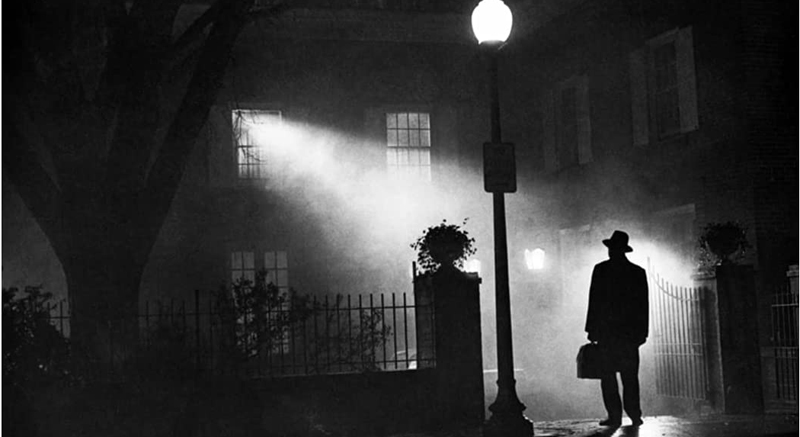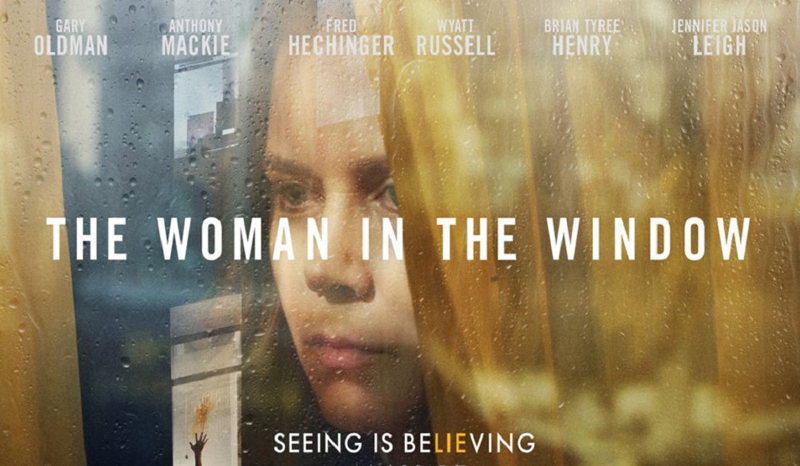
If movies are supposedly “dead,” then why are video streamers producing them by the truck load?
In just the past week, it was learned that NBCUniversal will spend $400 million to make a new “Exorcist” movie trilogy for to-be-determined play on its Peacock video streamer as well as cinema for October 2023. Elsewhere, the parent of streamer HBO Max announced plans to make 10 motion pictures or more by next year exclusively for streaming, in just some of many initiatives in recent weeks pumping up new movies produced primarily for online platforms.
This surge into film contradicts recent pronouncements that the movie medium is in decline or even “dead.” That demise argument postulates that the streamers taking over media tilt to TV series to hook subscribers with interconnected content. And the argument also goes that streamers have only minor interest in cinema release.
Lion-in-winter media mogul Barry Diller told radio NPR recently that “the movie business is over. The movie business as before is finished and will never come back.” Though now a digital media tycoon, Diller has authority on the topic because he used to run Paramount Pictures and 20th Century Fox Pictures.
“I used to be in the movie business where you made something really because you cared about it,” Diller continued in an NPR radio interview. Today “it is to buy more Amazon stuff. That’s not a terrible thing. It just doesn’t interest me.” His reference to “cared about” and Amazon is a not-so-subtle knock of streamers that are known to dig deep into viewing data of their subscribers to shape their content offers; and Amazon streams to build its ginormous online commerce business.
Taking the opposite stance, full-throated praise for the movie medium came from WarnerMedia boss Jason Kilar whose purview includes streamer HBO Max, all of which are owned by AT&T. “The motion picture format absolutely matters,” Kilar told an investors conference call days ago. “It matters in theaters. ‘Godzilla vs. Kong,’ which we released [in the second] quarter, has done over $463 million in revenue at the theaters. And so, so clearly motion pictures matter and will continue to matter when it comes to theatrical exhibition. They also matter at home [viewing], and absolutely, in terms of the response that we’ve gotten not just from that title, but from all of our day-and-date titles.”
Day-and-date refers to films from corporate sibling Warner Bros. Pictures premiering both in theaters and on HBO Max this year, such as “Godzilla vs. Kong,” as the pandemic disrupted cinema and the corporate imperative to boost HBO Max. Next year, the plan is for Warner Bros. Pictures titles to revert back to playing cinema first, and so corporate sibling HBO Max offsets that loss with the aforementioned 10 films made for streaming.
Streamers are pumping up original movies across the media landscape, in addition to the “Exorcist” trilogy and HBO Max 10:
* Filmmaker Steven Spielberg has struck a multiyear deal to make movies for Netflix.
* Netflix agreed to pay a rich $450 to produce two sequels to “Knives Out,” whose first installment was a cinema-first release via Lionsgate.
* This month Netflix formed a dedicated content-creation team for original big-budget, popcorn-fun movies, after producing a trickle; this included the $165-200 million budgeted mafia drama “The Irishman” that was nominated for five Oscars.
* In May, streamer Paramount+ — the streamer of ViacomCBS — unveiled plans to program an original movie a week starting in 2022.
* Amazon Prime Video in May nabbed the film adaptation of English hit stageplay “Everybody Is Talking About Jamie,” which originally was going to be a Fox/Disney theatrical.
* Hulu offered National Geographic Documentary Films production of “Rise Again: Tulsa and the Red Summer” — a feature film documentary about an infamous race riot — one day after its premiere on the NatGeo linear TV channel in June.
* Fox Entertainment ‘streamer Tubi announced plans for original programs in April that include films.
* In December, Disney+ unveiled a slate of streaming originals including “Hocus Pocus 2,” a reboot of “Three Men and a Baby” with Zac Efron, a reboot of “Cheaper by the Dozen” with Kenya Barris and Gabrielle Union, and a new “Sister Act” film starring Whoopi Goldberg who is also producing with Tyler Perry.
* Known best for dispensing physical DVD rentals from kiosks, Redbox acquired domestic distribution rights to crime drama movie “Bandit” in the latest of a string of on-demand/theatrical hybrid initiatives.
Streamers are also pouncing on already-produced films. Amazon has a pending $8.45 billion mega-deal to buy MGM whose main attracting is its large film library with the crown jewel as the James Bond spy flicks. Separately, in a complex transaction, Lionsgate agreed to buy the bulk of The Weinstein Co. film library (“Scream” franchise and “The King’s Speech”) to bolster its Starz streaming/premium pay cable service.
Movies are a core for good reason. They have the gloss of “event” more than even the most popular TV series and the original movies that streamers have produced so far mostly pay off. For example, Netflix projected that 61 million households view all or part of “Fatherhood,” its original family comedy starring Kevin Hart, in its first four weeks. Nielsen streaming ratings for a week in June attributed 500 million minutes of viewing for Netflix original movie “The Woman in the Window,” which meant the psychological thriller tops all but a handful of TV series. And TV series are longer so they would be expected to roll up more viewed minutes.

Another attribute is movies can fill gaps in schedules. If a steamer has nothing that’s exciting on a future Friday, simply parachute in an original movie.
A drawback is that one-off programs like movies require more proportional promotion than TV series, which once established become mostly self-propelled.
It’s odd that the movies-are-dead argument has traction. According to Ampere Analysis, Netflix produced 133 films between 2016 and early 2020, more than the theatricals of any one major Hollywood studio.
Related content:
Leave a Reply